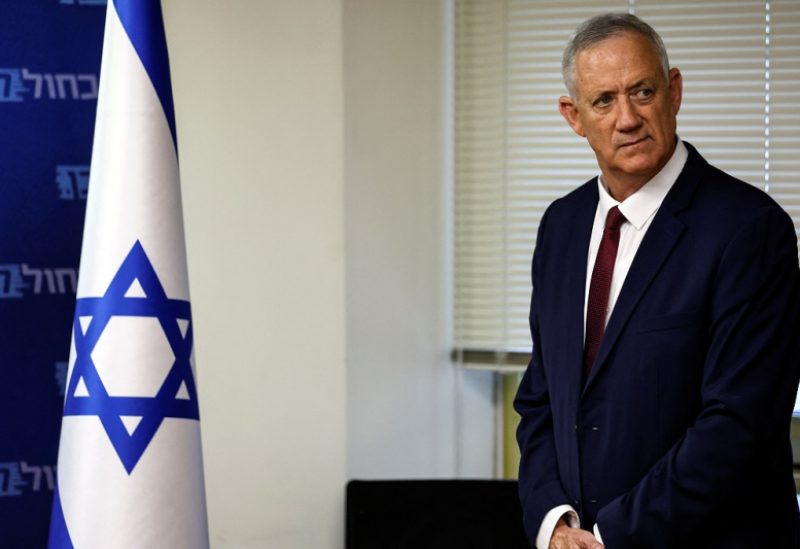
Israeli Defence Minister Benny Gantz attends his party's meeting at the Knesset, Israeli parliament in Jerusalem, June 27, 2022. REUTERS/Ronen Zvulun
Israel accused the Hezbollah militia in Lebanon, which is backed by Iran on Wednesday, of carrying out a cyber operation to obstruct a U.N. peacekeeping force on the border between the two nations. Israel also vowed severe punishment against the hostile hackers.
The charge was made at a time when tensions between Israel and Iran are rising; neither Beirut nor Tehran nor the United Nations Interim Force in Lebanon (UNIFIL) responded to it right away.
In what he termed a first public disclosure of the incident, Israeli Defence Minister Benny Gantz said “Iranian security institutions in cooperation with Hezbollah (recently) launched a cyber operation with the aim of stealing materials about UNIFIL activities and deployment in the area, for Hezbollah’s use”.
“This is yet another direct attack by Iran and Hezbollah on Lebanese citizens and on Lebanon’s stability,” he told a cyber conference at Tel Aviv University, without elaborating.
Established in 1978, UNIFIL patrols Lebanon’s southern border. It is charged with monitoring the ceasefire that ended the last war between Hezbollah and Israel in 2006.
Israel has accused Hezbollah gunmen of setting up clandestine positions at the border in defiance of UNIFIL. Lebanese officials say Israel continues air force overflights of their territory in violation of the ceasefire.
Gantz said an Iranian Revolutionary Guards Corps cyber unit called “Shahid Kaveh” had “conducted research to damage ships, gas stations and industrial plants in several Western countries including Britain, the U.S., France and Israel”.
Britain’s Sky News reported similar allegations last year, saying the Iranian embassy in London had not responded to them.
Gantz hinted that Israel – which is widely believed to have waged cyber war against Iran’s nuclear facilities and other infrastructure – may retaliate physically against enemy hackers.
“We know who they are, we target them and those who direct them. They are in our sights as we speak – and not just in the cyber-space,” he said. “There is a variety of possible responses to cyber-attacks – in and outside of the cyber-domain.”